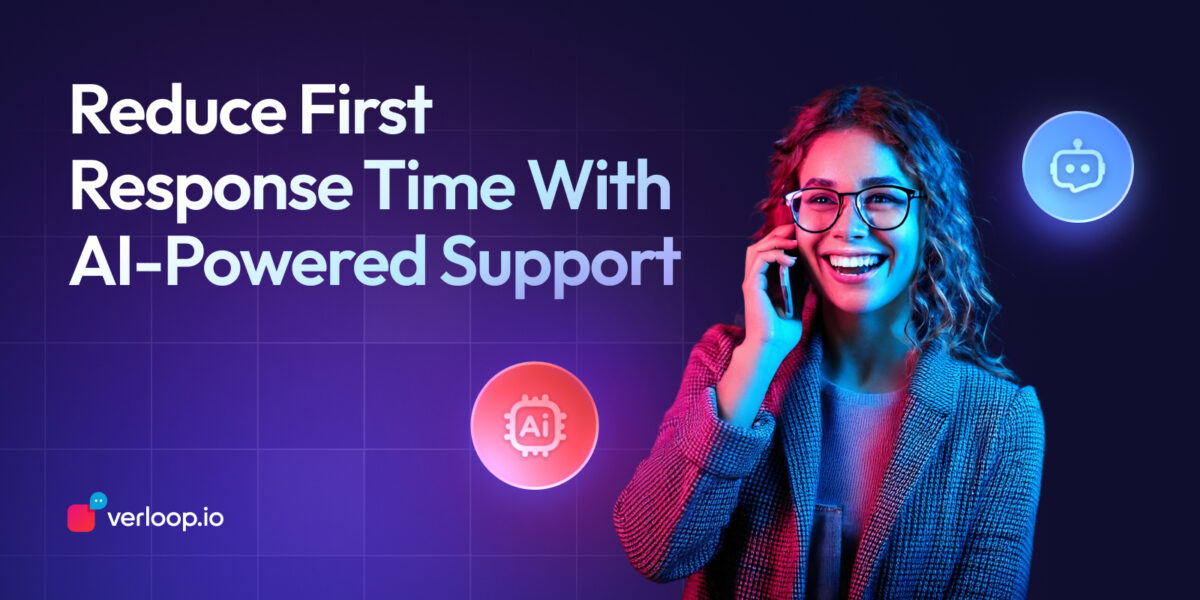The Art of Effective Customer Communication on WhatsApp

The Art of Effective Customer Communication on WhatsApp
With more than 1.5 billion active users — or nearly one-third of the global internet audience — WhatsApp has become a vital platform used within a lot of customer marketing strategies and by a wide category of businesses. (B2B, B2C, D2D, and more)
But, as one of the biggest online platforms, WhatsApp is also one of those competitive platforms that businesses leverage to extend Proactive Customer Support.
Speaking of benefits, some of the common ones that you might have experienced by communicating with your customers on WhatsApp could be the space to build profound relationships with customers, reap a higher conversion rate, do better sales, enjoy a lower cost of marketing, etc.
Suggested Reading: How to create a WhatsApp Business Account
What You Need to Know
Have you ever wondered why some customers still ghost you or worst, block you despite putting monumental efforts into proactive customer communication?
We are here to help you rise above the challenge of over-communication using WhatsApp in the name of marketing/support campaigns – It’s fairly simple. All you have to do is – set a cadence as to WHEN you’re communicating and WHAT you’re communicating.
Targeting prospects on WhatsApp could be your best resort as WhatsApp Marketing Campaigns ensure great engagement rates, as opposed to mobile messages (open/read rates remain unknown).
But, did you also know WhatsApp terminates your account for violations of WhatsApp Business terms or policies?
This might as well prohibit you and your organization from future use of all WhatsApp products.
Heads-up! Here’s Why Customers Block Your Business on WhatsApp
While businesses could see sending out bulk campaigns on WhatsApp as a boon, customers don’t necessarily have to. Imagine. Your customer is offline and you notify (spammify) your customers back-to-back trying to communicate things that your customers might not be in the mood to know about.
Your customers come online to get flooded with your Spamifications.
Well, what next?
Ultimately, if users disengage with your WhatsApp campaigns, they’ll block your business, which is not even close to the last thing you want. Hence, before you begin running campaigns on WhatsApp, it’s important to ask yourself, “Why do customers block my business?”, “Why is my whatsapp business account banned?”, “How can I keep the campaign interactive to increase the response rates?”
Suggested Reading: Everything about WhatsApp Privacy Policy for Business
Exploiting the Broadcast List
The quite popular ‘Broadcast lists’ in WhatsApp Marketing Campaigns enable you to send a message to anyone in your contact list who has your number saved in their phone’s address book. But bombarding messages to your customers without keeping tabs on the frequency could be potentially dangerous to your business. To top it, WhatsApp doesn’t rely on its users to mark a business as spam as the ML algorithms take care of that bit.
P.S: WhatsApp blocks about 2 million accounts every month on average. Worry not. You can still activate your WhatsApp account by remediating it with certain steps.
When and How Often Can I Send Campaigns on WhatsApp?
First, let’s answer the HOW for you. As a rule of thumb, time it right. So, say, Fridays and Saturdays are mainly suitable for sending out campaigns on deals, offers, etc., to encourage weekend shopping. At the same time, Mondays and Tuesdays could be days of informative tips.
Let’s look at an interesting example.
This is how this mayonnaise brand – Hellman, gave its customers a personalised experience using its WhatsApp Marketing Campaign- WhatsCook, generating 13,000 sign-ups. When customers signed up for this campaign online, they were asked to send photos of the items they had put in their refrigerator so Hellman’s chefs could guide them on what to make with the available ingredients.
Moving on to the WHEN of it, by default, WhatsApp allows you to contact your customers only if: (a) they have given you their mobile number and (b) they have agreed to be contacted by you over WhatsApp. Hence, you must not confuse, deceive, defraud, mislead, spam, or surprise people with your communications.
“So, what’s the ideal frequency?” you may ask.
There’s an optimal frequency for every business at which they should be sending out campaigns to communicate with their customers. Remember, no one, but only you can experiment with it.
For example, on average, Media companies send 3-5 messages daily. Historically, this has worked well for this sector. Likewise, see what works best for your business. Do not overdo it.
Suggested Reading: How to Communicate Proactively with Customers
How Do I Chat Professionally on WhatsApp?
It’s important that all messages/notifications must be sent in accordance with WhatsApp’s Privacy Policy for Businesses. If you continue to spam your customers, sooner or later WhatsApp could also be inflicted because of your brand and hence appear to be a dismal standard of communication-channel.
Hence, here are some pro-tips from us to maintain communication hygiene on WhatsApp.
#1 Try not to limit yourself to only promotional messages; remember to entertain and educate your audience. Ask yourself – “What purpose does this message serve?” And then, categorise your text messages based on the purpose. This allows you to figure out the next step. Head to tip #2.
#2 Pay close attention to text length. Keep your communications short and sweet – people often check WhatsApp on the go and have no time to read long messages.
#3 Develop a more cohesive and personalized omnichannel experience. If WhatsApp is not their choice of channel, identify where they would like to connect with you.
#4 Experiment and choose a format that best suits the context. Reinforce your messages with multimedia files, such as videos, animations, or pictures. Use Emojis to better express yourself and sound more empathetic. Using GIFs is also appropriate in WhatsApp Business Messaging.
Always, adopt the best practices for WhatsApp Business Messaging.
Over To You
Ensuring success in handling customer communication on WhatsApp is crucial, as any missteps in your strategy could negatively impact your brand. It’s essential to avoid blindly adopting a random pattern simply because it worked well for another brand. Instead, the key is experimenting and finding what works best for your situation.
Often, businesses need to pay more attention to the significance of providing clear and straightforward instructions and delivering prompt customer service. If you haven’t incorporated automation into your customer support strategies, we highly recommend partnering with Verloop.io.
Make the smart choice: Opt for Verloop.io. Schedule a demo today!






